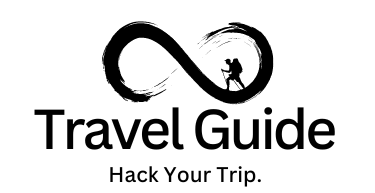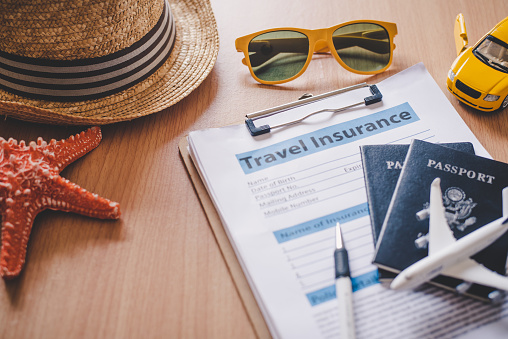Traveling is fun and can help you gain the experiences of a lifetime. But because travel is unpredictable, strange things can happen, turning fun into worry. Buying cheap travel insurance is a smart way to protect yourself against these unknown factors and give yourself peace of mind. This guide describes how to find cheap and reliable travel insurance, covering the most important things to consider.
Understanding the Basics of Travel Insurance
Travel insurance is intended to protect you against unplanned events that may arise before or during your trip. Trip cancellations, medical issues, lost or stolen luggage, and other unexpected issues while traveling can all fall into this category. Because so many things can go wrong, it’s important to understand the different types of benefits. These usually include:
Trip Cancellation Insurance: Trip cancellation insurance covers the costs if you have to cancel your trip due to circumstances beyond your control, such as illness or family problems.
Medical Insurance: Health insurance covers the medical costs you incur while traveling, which is important if you are traveling abroad where your normal health insurance may not apply.
Baggage Insurance: Luggage insurance pays out if your luggage is lost, stolen, or destroyed.
Flight Insurance: Flight insurance covers accidents that occur while flying and provides health insurance benefits.
Check whether you need travel insurance
Think carefully about the nature of your location, how long your trip will take, and what you want to do. Some higher-risk hobbies or places may require broader coverage. Also, consider your health and any risks you may face. People with pre-existing health conditions often need additional coverage.
Compare subscriptions and service providers
With so many providers offering so many plans, it’s important to weigh your options carefully. When comparing travel insurance, use reliable comparison sites and pay attention to details about coverage, customer reviews, and prices. Make sure you choose a policy that gives you a good combination of comprehensive coverage and low costs.
Shop around for multi-trip or annual policies
Frequent travelers may consider purchasing annual or multi-trip insurance. These policies cover all trips within a year, which can save a lot of money compared to buying individual policies for each trip. It’s easy to use these plans because you don’t have to buy new insurance for every trip and they often cover more.
Check your credit cards and insurance policies
Many credit cards come with travel insurance, which covers things like trip cancellation, lost luggage, and damage to the rental car. Additionally, some parts of your home or health insurance may cover your travel plans. Check these existing coverages to see if you’re paying for coverage you don’t need and identify gaps where you need more coverage.
Learn more about exclusions and deductions
It’s important to know what your coverage excludes (exclusions) and how much you’ll have to pay before your insurance starts paying out. Policies with a higher deductible usually have lower premiums, but if you make a claim you will have to pay more out of your own money. Make sure this combination works for you so you don’t have to worry about money in an emergency.
Consider taking out specialist insurance for high-risk activities
Standard travel insurance may not cover activities considered dangerous, such as scuba diving, mountain climbing, and backcountry skiing. If these things happen to you during your trip, you may want to get specific insurance to make sure you are fully covered.
Take out insurance as early as possible
If you purchase insurance in advance, you will be covered if something happens that requires you to cancel before your trip begins, such as illness or family problems. Your insurance costs can also decrease if you take out your policy early with certain insurance companies.
Save all the files you need
As with any potential insurance claim, it is important to keep extensive documentation, such as receipts, medical reports, and notes of conversations with service providers. Having the right paperwork in place can speed up the claims process and help ensure you get the money you’re entitled to.
Review and Update Your Policy as Needed
If your travel plans change, you will need to review your insurance policy and make any necessary changes to meet your new needs. If you change your planned activities, location, or trip duration, this may affect the coverage you need. Checking your insurance regularly will ensure that it remains valid and sufficient during your trip.
Conclusion
All in all, getting cheap travel insurance that meets your needs requires careful planning, comparing, and understanding your unique travel plans. When you choose and manage your travel insurance in advance, you travel knowing that you are covered against the various risks that travel entails. By planning this way, you can enjoy your trip knowing you have a safety net in case something goes wrong.
FAQs
1. How do you take out the best flight insurance?
To get the best deal, look at different policies from different companies and compare them based on the benefits and costs they offer. You can use online comparison tools to view customer reviews, coverage limits, and benefits. Look for a plan that gives you the basic coverage you need, without adding extras you don’t need and increasing your costs.
2. What does cheap travel insurance usually cover?
Basic travel insurance often covers costs such as emergency medical expenses, trip cancellation and interruption, lost or delayed luggage, and even an emergency evacuation. Different policies cover different things, so it’s important to read the terms and conditions carefully.
3. What are the risks of buying cheap travel insurance?
The biggest risk is purchasing inadequate coverage for your needs, which could mean paying a lot of money out of pocket in the event of an emergency. Make sure the policy covers major expenses such as medical bills and trip cancellations, and research the company’s history of good customer service and image.
4. Can I get travel insurance if I have a pre-existing health condition?
Yes, but you may need to find a specific policy that covers pre-existing conditions as most plans do not cover them. Some insurance companies will cover pre-existing conditions if you purchase the policy within a certain time after booking your trip.
5. What does a deductible mean in the price of flight insurance?
Usually, a lower premium means a higher deductible. A deductible is the amount you pay out of pocket before your insurance covers the rest. However, make sure you can cover the costs if you need to make a claim.
6. Should I get travel insurance only for trips outside the United States or for all my trips?
You may consider taking out travel insurance for all your trips, even just across the border. This is especially true if you have already paid for flights, hotels, or travel. When traveling within the United States, health care may not be as important, but coverage for trip cancellation, layover, and baggage loss can be helpful.




